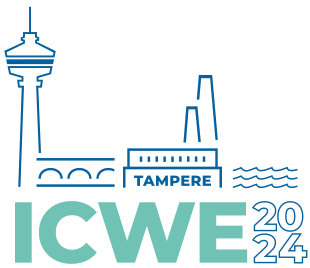Vanilla JS – Design and Implementation of a Progressive Web Application from Scratch
Presenters
- Tobias Münch
Abstract
Nowadays, web applications are developed using different kinds of web frameworks. The usage of them is always a trade-off between comfort, resource efficiency, and long-term dependency. This dependency can have a negative effect on maintainability. The Vanilla JS approach avoids the use of frameworks and consequently relies on the strict use of W3C standards. In this tutorial, an offline-ready progressive web application (PWA) build, according to the frameworkless approach without increasing the development effort compared to development with respective frameworks. To solve this complex tasks, components of the web standard “Web Components” are introduced and used. Additionally, patterns for state management and offline capability as well as routing between different pages are discussed. Finally, the sample application is extended by a responsive design. The sample application is build in an iterative way, so the participants will learn theoretical concepts as well as practical implementation.
Duration: 6 hours
Presenters
- Martin Beisel
- Jose Garcia-Alonso
- Juan M. Murillo
- Benjamin Weder
Abstract
Quantum applications are hybrid and require quantum and classical programs. Similar to classical applications, they can benefit from modularity, maintainability, and reusability. This can be achieved by implementing the different functionalities of quantum applications as independent web services. In this tutorial, we provide an overview of concepts to develop and execute quantum applications based on the paradigm of service-oriented computing. This includes the development of quantum web services and corresponding OpenAPI specifications. Further, these services are orchestrated using quantum workflows to achieve robustness, scalability, and reliability. Thereby, concepts and tools for their modeling, execution, and monitoring are introduced and practically applied.
Duration: 3 hours
The Five Generations of Entity Resolution on Web Data
Presenters
- Konstantinos Nikoletos
- Ekaterini Ioannou
- George Papadakis
Abstract
Entity Resolution constitutes a core data integration task that has attracted a bulk of works on improving its effectiveness and time efficiency. This tutorial provides a comprehensive overview of the field, distinguishing relevant methods into five main generations. The first one targets Veracity in the context of structured data with a clean schema. The second generation extends its focus to cover Volume, as well, leveraging multi-core or massive parallelization to process large-scale datasets. The third generation addresses the additional challenge of Variety, targeting voluminous, noisy, semi-structured, and highly heterogeneous data from the Semantic Web. The fourth generation also tackles Velocity so as to process data collections of a continuously increasing volume. The latest works, though, belong to the fifth generation, involving pre-trained (large) language models which heavily rely on external knowledge to address all four Vs with high effectiveness.
Duration: 1.5 hours
